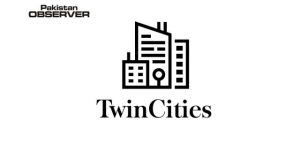4.1 million files ‘digitally archived’ for quick processing
Zubair Qureshi
The United States embassy in cooperation with the Ministry of the National Health Services (NHS) has overhauled and updated the records management system of the Drug Regulation Authority of Pakistan (DRAP) by digitizing more than 4 million documents and files of the authority.
The system, developed by the US Agency for International Development’s (USAID) Global Health Supply Chain programme, will create digital archives and barcode paper files, which are critical to accountable tracking of DRAP’s files.
DRAP sought USAID’s support to digitize the records, and USAID provided training to the DRAP staff on records management best practices.
“This digitized system that USAID and the Government of Pakistan have created modernizes, streamlines, and harmonizes data archives, which directly supports data accessibility and visibility,” said USAID Deputy Mission Director Michael Nehrbass while commenting on the achievement.
We will also ensure transparency of information and records management, which ultimately will help ensure access to quality-assured medicines and commodities in Pakistan, he said.
Special Assistant to PM on (SAPM) on Health Dr Faisal Sultan while hailing the digitization of the old record said, “We appreciate USAID’s technology assistance in digitization of 15 years’ historical 4.1 million records of DRAP and I am very happy to know that DRAP’s needs have been articulated into a Document Management System (DMS) in line with international standard.
CEO DRAP Asim Rauf apprised that the digitization had made it easier to store, access and transmit the paper based record, it has improved the data sharing with in the different sections of DRAP.
He said, “DRAP believes in transparent and accountable management of its function as mandated by DRAP Act 2012. He said my departments have tested DMS and have started the application already.
“This digitized system that USAID and the Government of Pakistan have created modernizes, streamlines, and harmonizes data archives, which directly supports data accessibility and visibility,” said USAID Deputy Mission Director Michael Nehrbass.
“It will also ensure transparency of information and records management, which ultimately will help ensure access to quality-assured medicines and commodities in Pakistan.”
Ex-SAPM for Health Dr Zafar Mirza also lauded the digital archiving of records.
He said that he is pleased to see DRAP moving towards stringent regulatory authority status which would help opening new avenues for our local therapeutic products across the globe.
Country Director, USAID Global Health Supply Chain Programme, Dr. Muhammad Tariq apprised the audience about USAID and Government of Pakistan’s technology cooperation for strengthening public health supply chain and digitization of DRAP record.
He assured that bilateral cooperation between USAID and Pakistan is aligned with NHS and NIH vision of integrated digital health and real time information systems and that USAID funded Global Health Supply Chain will continue providing assistance on Global Standards for sustainable development.










